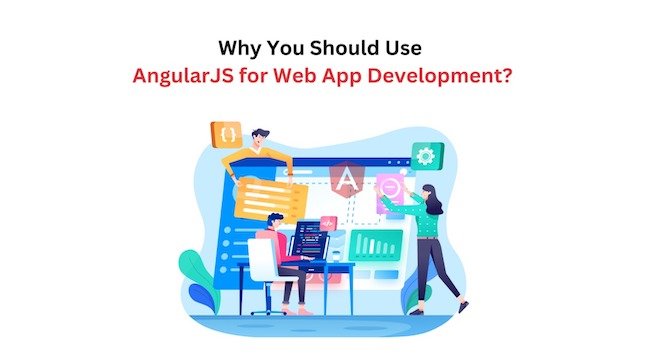In this mobile-first competition, a user-friendly ecommerce app acts as a sales booster. To build that catchy and functional app choosing the right technology to build creates some confusion. Among many, two popular contenders are React Native and native app development.
Which one is convenient? How will you choose the best-fit? Read below to get the answers. In this article, we have broken down these options with up-to-date tips!
Let’s go through them in detail!
React Native: The Speedy Champion
If you have to develop a fantastic ecommerce app but want it to be cost-effective in less time, React Native comes to the scene! Plus, consulting the top react native app development company is easier and reliable.
Here’s why React Native for app development:
- One Codebase, Two Platforms: React Native uses JavaScript, a familiar language for many developers. This lets them write code once and deploy it on both Android and iOS platforms, saving time and resources. Think of it like having one sales script that works for both morning and evening customers!
- Faster Development: React Native apps reuse existing UI components, so development is quicker compared to building separate native apps from scratch. This means you can get your app up and running faster, reaching those eager customers quicker.
- Cost-Effective: With a single codebase and faster development, React Native apps build no burden on shoulders. It is a win-win condition for business owners who want to keep their app development budget under control.
However, React Native can’t solve all the problems. Here are some things to consider:
- Limited Customization: Native apps offer more flexibility when it comes to customizing the look and feel of your app. For example, high-end clothing may require a Native app. Why? Because, there is a need for unique design features as compared to a general merchandise store. React Native might not offer the same level of customization for these specific needs.
- Performance Considerations: While React Native apps are generally fast, they might not match the raw performance of native apps in some situations. Imagine a high-end gaming app – it needs lightning-fast performance, which native development can better deliver.
You May Like to Read: 10 Innovative New Mobile App Ideas
Native Apps: The Powerhouse Champions
Need an app with top-notch performance? Want complete customization freedom? If so, then, native apps are the way to go. Here’s why:
- Unmatched Performance: Native apps are built specifically for each platform (Android or iOS), allowing them to leverage the device’s full potential for speed and responsiveness. Consider it as a race car, which builds for ultimate performance on the track.
- Seamless User Experience: Native apps integrate seamlessly with the device’s features like camera, GPS, and local notifications. This creates a smooth and familiar experience for users.
- Highly Customizable: Native app development offers complete control over the app’s design, features, and functionality. It is good for businesses with specific brand or functional requirements. This may include a furniture store that requires AR features to help customers visualize furniture in their homes.
However, there are not only benefits. It also comes with some challenges:
- Higher Development Cost: Building separate native apps for Android and iOS requires more time and resources, leading to a higher overall cost. Think of hiring two salespeople instead of one – it doubles the cost.
- Slower Development: Developing two separate apps takes longer than building one React Native app. This might delay your app’s launch and prevent you from reaching customers as quickly.
So, How Do You Choose the Right Champion?
Here’s a quick guide to help you decide:
- Go React Native if: You have a tight budget and need a fast time-to-market. Your app prioritizes basic functionality and a user-friendly interface over cutting-edge features.
- Go Native if: Performance is crucial for your app. You need a highly customized design or require deep integration with device features. Your budget allows for the higher development cost.
Remember, the best option depends on your specific needs.
You May Like to Read: 5 Best Personal Finance Apps for You
Still Undecided?
Don’t worry! A reputable ecommerce app development company like AppVerticals can help you assess your business goals. Plus, it will recommend the right technology for your app. These experts ensure you get a high-quality app that drives sales and keeps your customers happy.
Now, what do you think? Consider this example!
For a small clothing store where a user-friendly app can grab more then, React native is a good fit. Why? It is convenient here due to its cost-effectiveness and faster development time.
However, for large sporting goods companies, an app requires more creative features than the above one. Here, Native Apps would be a great fit. These features may include AR product testing and live score updates.
The landscape of ecommerce apps is constantly evolving. Here are some exciting trends to watch:
- Hybrid App Development: This combines elements of both React Native and native development, offering a balance between cost and performance.
- Headless Commerce: This separates the front-end app from the back-end infrastructure, allowing for greater flexibility and scalability.
- Emerging Technologies: Expect to see features like AI-powered product recommendations, augmented reality experiences, and voice commerce capabilities integrated into ecommerce apps.
The Bottom Line: Choosing Your Champion Wisely
Whether you choose React Native or native app development, the key is to pick the technology that best aligns with your business goals and target audience.
By carefully considering your budget, desired features, and timeline, you can build a winning ecommerce app that becomes the hero of your sales strategy and keeps your customers coming back for more!






